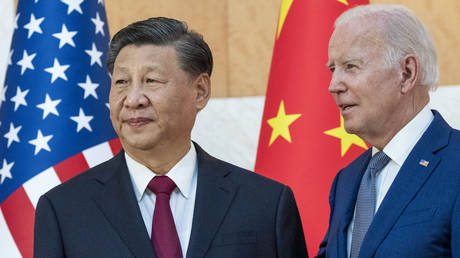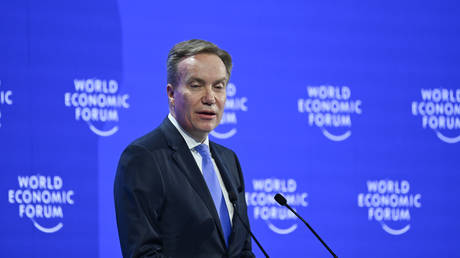
The US president warned Beijing about the impact relations with Moscow could have on Western investments
US President Joe Biden called on his Chinese counterpart Xi Jinping ‘to be careful’ after Xi visited Moscow back in March, the American leader has told CNN. In extracts from the interview released on Saturday, Biden said he had highlighted what he called the Asian giant’s dependence on European and US investments.
“I said: This is not a threat. This is an observation,” Biden told CNN.
“Since Russia went into Ukraine, 600 American corporations have pulled out of Russia. And you have told me that your economy depends on investment from Europe and the United States. And be careful. Be careful,” he added.
Following their Moscow talks, Putin and Xi signed documents on deepening the Russian-Chinese strategic partnership and economic cooperation. Both governments emphasized their readiness to work towards a trade volume of $200 billion or higher, with national currencies increasingly being used in a bid to de-dollarize trade.
The conflict in Ukraine was discussed during the Moscow visit as well, with China maintaining its neutral position. Beijing has repeatedly criticized the West’s “abuse” of unilateral economic sanctions and has made efforts toward a peaceful resolution in Ukraine, proposing a twelve-point peace plan. In May, a Chinese special envoy visited several countries, including Russia and Ukraine, in an effort to broker an end to the conflict.
Biden’s CNN interview comes as US relations with China are far from calm, with Taiwan and security concerns in the Asia-Pacific region among the key issues exacerbating strained ties.
President Biden himself provoked a diplomatic incident in June, when he called his Chinese counterpart a “dictator” during a speech. While the US president dismissed concerns that his comment could hinder efforts to improve relations, the Chinese embassy issued a formal protest in response, and foreign ministry spokeswoman Mao Ning denounced the remark as an “open political provocation.”




